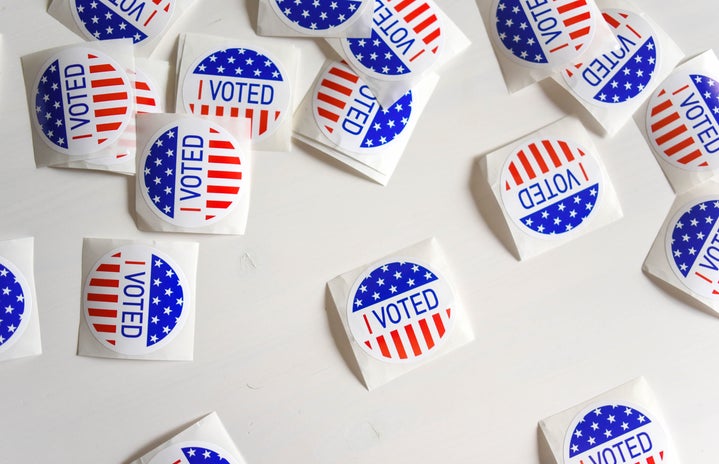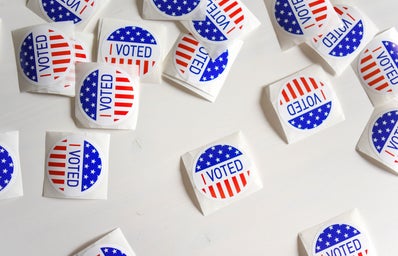The first presidential debate between President Donald Trump and Democratic nominee Joe Biden could best be described as turbulent.
The debate, which took place on Sept. 30, took a chaotic turn as the 2020 election candidates fought for speaking time and personally attacked each other. Moderated by Chris Wallace, the presidential debate featured frequent arguing between the two candidates, further fueled by President Trump interrupting both Biden and Wallace.
Allison Langer, a 19-year-old business and public relations sophomore, said she is very interested in politics and watched every primary. However, she decided against watching the debate.
“I knew that if I watched the debate, I would be watching a hot mess,” she said. “No matter what, the two of them being on stage together was going to be awful and at best, just a waste of my time.”
Both candidates originally agreed to an answering period of two minutes each before the debate, but due to several outbursts, this time frame was rarely followed.
The debate lasted 90 minutes and covered prevalent topics, including the Supreme Court, COVID-19 and the economy. Since the debate’s end, many of the candidates’ statements have proven to be false, according to FactCheck.Org.
Wallace’s first question of the night concerned Trump’s Supreme Court nomination of Amy Coney Barrett following the death of Justice Ruth Bader Ginsburg. Biden expressed his belief that another justice should not be appointed until after the election. Their discussion soon became heated, resulting in Biden asking Trump “Would you shut up, man?”
The former vice president’s exclamation occurred after Trump continued to speak over him despite Wallace’s objections.
Lizzie Hartzog, a 19-year-old finance and economics sophomore, watched the debate and said that she thought there lacked substance behind the answers given by the candidates.
“I think really the lack of professionalism was one thing because at the end of the day,” Hartzog said, “politics aside, this is the leader of our country, and there’s a certain level of poise and respect that comes with that regardless if you agree with either side.”
In a later question, Wallace transitioned the debate topic to discuss COVID-19. Biden criticized the way in which the Trump Administration handled the pandemic, stating the number of lives lost and the increase in unemployment. Trump countered the attack by stating a vaccine was “weeks away.”
Soon after, Wallace asked Trump about his 2016 tax returns, following an article released by The New York Times stating the president paid a total of $750 in income taxes that year. Trump was quick to deny Wallace’s statement.
“I’ve paid millions of dollars in taxes, millions of dollars of income tax,” Trump said. “I paid $38 million one year. I paid $27 million one year.”
Biden asked Trump when the public would get to see Trump’s tax returns. According to Trump, the Internal Revenue Service currently has his taxes under audit, explaining the public’s lack of access to the documents.
Leading up to the debate, Biden released his 2019 tax return to the public, allowing them to contrast the amount he paid compared to Trump. The documents show that Biden paid almost $300,000 in federal taxes that year.
In another memorable moment, Wallace asked Trump to condemn white supremacy. Trump did not explicitly do so, and instead, blamed the left wing. When asked to denounce the Proud Boys, a group known for being far-right and associated with violence, the president said, “Proud Boys: Stand back and stand by.”
Hartzog said that the debate made her feel even more motivated to vote on Nov. 3.
“It seems like the state of our country needs some sort of unity, and we need some sort of leadership,” she said. “This debate showed me that I’m the one that has to go out and do something about it.”


